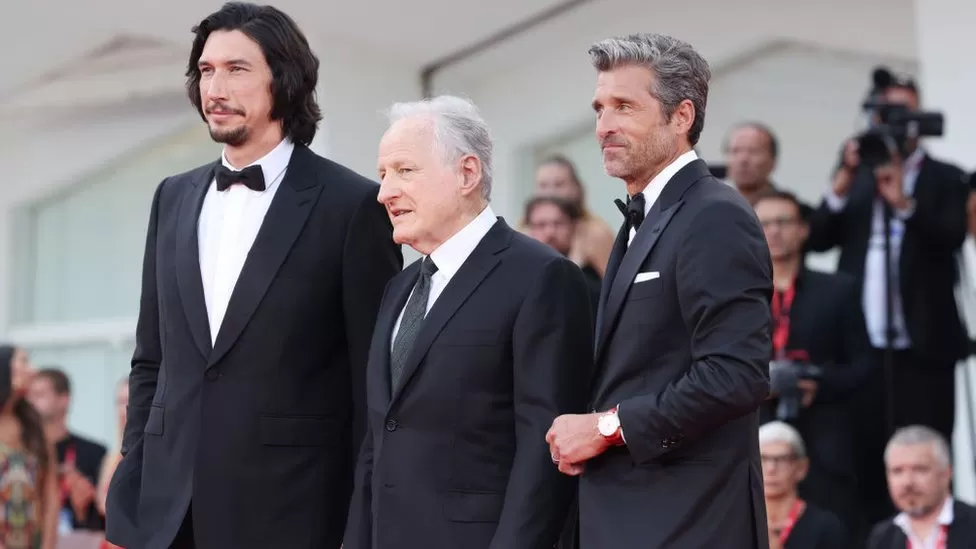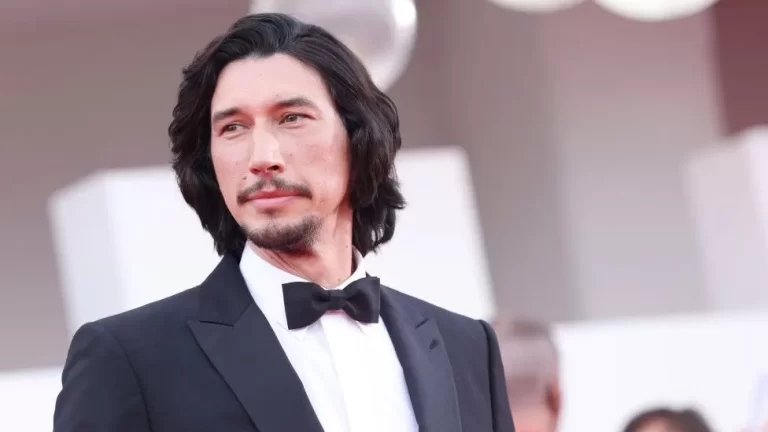Adam Driver has criticised big film studios and streamers for their treatment of workers as the US actors' and writers' strike continues.
The actor was speaking before premiere of Ferrari at the Venice Film Festival.
He was able to attend thanks to an agreement that independent films can still be promoted during the strike. Driver said he was “in solidarity” with the unions, and questioned why major companies cannot meet their demands when independent producers have done.
It is now 50 days since members of the Screen Actors Guild (SAG) joined the Writer's Guild of America (WGA) on strike for the first time in more than 60 years. Driver, who plays Enzo Ferrari, told reporters: “Why is it that a smaller distribution company like [Ferrari's] Neon and STX International can meet the dream demands of what [SAG] is asking for… but a big company like Netflix and Amazon can't?”
The Oscar-nominated actor added that when independent producers and distributors agree to SAG's terms, it “just makes it more obvious that these people are willing to support the people they collaborate with, and the others are not”. Ferrari director Michael Mann said all those working on the film stood in “total solidarity” with those on strike.
“Ferrari got made because the people who worked on Ferrari made it by forgoing large percentages of salaries, in the case of Adam and myself, and producers working basically for no fees.
“No big studio wrote us a cheque, and that's why we can stand here in solidarity with both unions,” he said.
More than 170,000 people have stopped working in a dispute over pay and the use of artificial intelligence in the film and television industries. In July, the the Alliance of Motion Picture and Television Producers said it had offered SAG a deal including wage increases and “first-of-their-kind protections” in areas including AI.
A ‘gripping' ride or ‘too slow'?
Ferrari, which also stars Penelope Cruz and Shailene Woodley, centres on the 1957 Mille Miglia, a 1,000-mile race across Italy. The film got mixed reviews from critics after its premiere. The Telegraph's Robbie Collin said it was “an electrifying ride” and “a triumphant return for director Michael Mann”, although much of the first hour felt “a little jumbled and staid”.
Variety agreed it was a “gripping and masterful drama”, which was “supple and compelling”. The US film site's critic Owen Gleiberman gave credit to “the ace acting of Driver, Cruz, and Woodley… as well as Mann's singular ability to interlock the film's crises like hidden depth charges of drama”.
Cruz's performance as Ferrari's wife Laura was singled out by several reviewers.
“This is Cruz's richest American film role in god knows how long, and she eats it up. An Oscar nod is all but guaranteed,” Rolling Stone's Marlow Stern wrote.

“But there's something missing from Ferrari,” he continued. “Like much of Mann's oeuvre, it operates at an emotional remove, keeping the viewer at arm's length. This works fine when we're navigating the criminal underworlds of Heat and Collateral, but less so when it comes to marital discord, or sport.”
The film may not be in contention for many Oscars next year, Deadline's Damon Wise said.
“A gnomic and, given what's at stake, strangely unemotional lead performance from Adam Driver makes it hard to warm to this odd and deeply self-absorbed character. Add in the glacial pace of its narrative, and a film expected to take an early awards-season lead will struggle to hold that pole position.”
He added: “The last 15 minutes or so, though, do rally, with a moment in which Cruz gets, finally, to do some acting.”
In a three-star review, BBC Culture's Nicholas Barber concluded: “The racing sequences have enough energy and jeopardy to raise the pulse rate, but the rest of Ferrari… well, surely a film about high-speed cars shouldn't pootle along as slowly as this one does.”
— CutC by bbc.com


